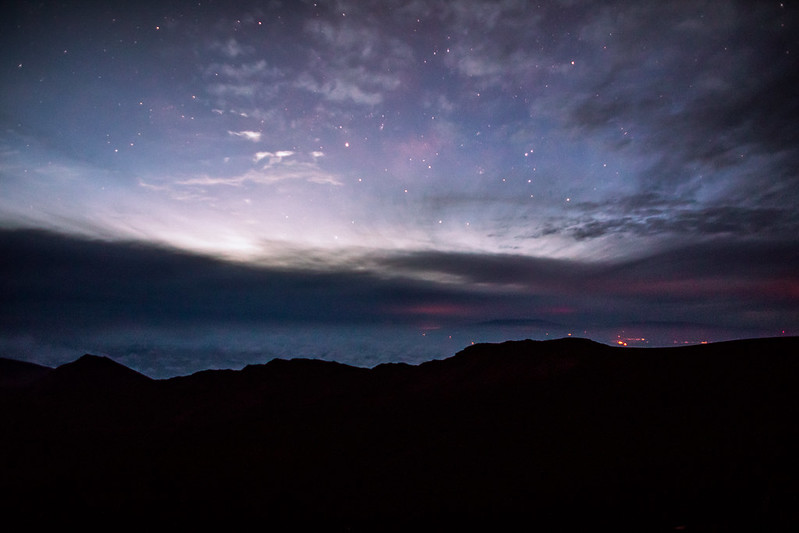
CONNECT WITH NATURE OR NOT (Another IPS)
Another IPS (Inner Peace Symptom): a tendency to notice what you are noticing and to ask why you’re noticing it. [Sometimes you notice things that call to your heart and your heart responds by dancing. The best move then is to go do more of that dance….]
Have you noticed the latest trend (especially after the pandemic lockdown) toward hugging trees, galaxy-gazing, mooning over wilderness landscapes and generally dissing our man-made constructs and urban follies?
Going-Outside-with-the-capital-O has become the new default mode of operation. (Mostly ‘cause it’s pretty boring being stuck inside-with-no-capital-I, even with all the latest gadgets and doo-dads.)
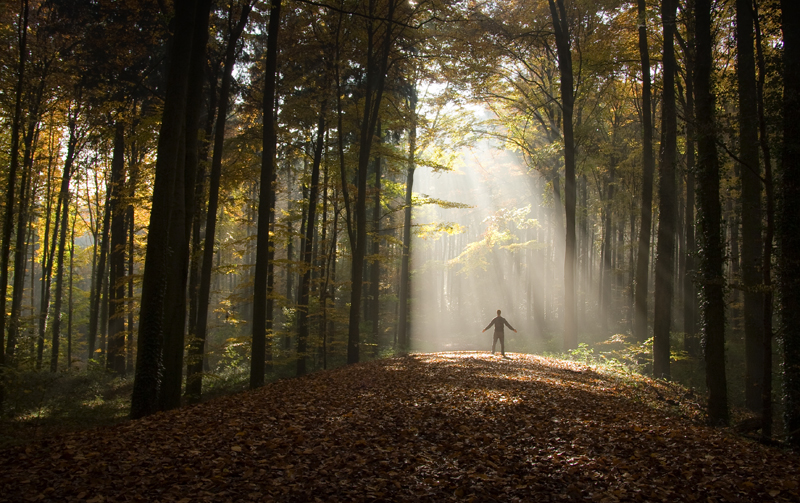
Just in the last few months (after years of mainstream focusing on techno-induced euphoria and dystopic musing) it seems that our Inner Hippy Dippy Nature-Lover is standing up to roar.
The Great Pinball Game of Life is flashing “TILT” and alarums and sirens and whistles and bleeps are sounding. We’ve been called to pay attention yet again to this world we are making together.

The solution is “obvious,” uh-huh, uh-huh. We’ve got to get back and “re-connect” to Nature, it says here…as if we were ever really out of it.
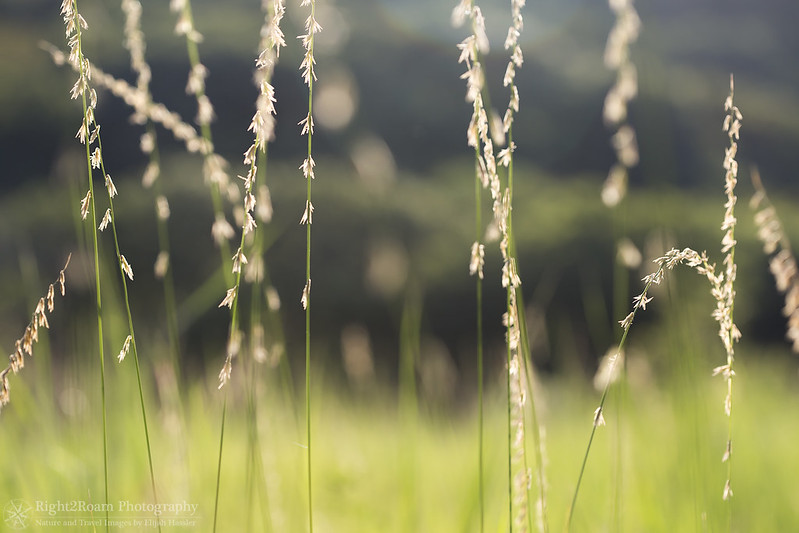
THE HUMAN-NATURE CONNECTION
The human love of life and living things has been a topic of much discussion and dissection by assorted philosophers and wise guys down through the ages.
We humans are drawn to life. We have an instinctual “biophilia” — what American psychologist Erich Fromm in 1964 called a “passionate love of life and living things.” Fromm thought it was a natural and intuitive instinct imprinted on our DNA.
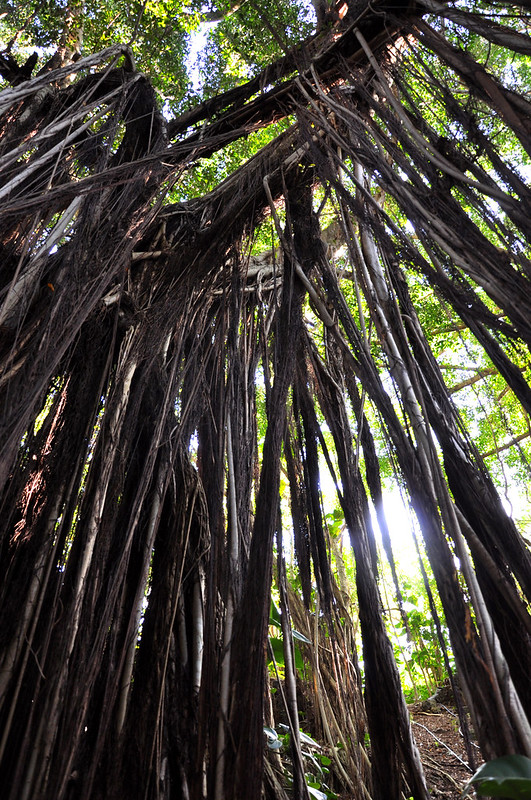
Wilson’s seminal book, BIOPHILIA, which was first published in 1984, is part philosophical treatise and part memoir with sparkling bits of field observations. At one point he says:
“To explore and affiliate with life is a deep and complicated process in mental development. To an extent still undervalued in philosophy and religion, our existence depends on this propensity, our spirit is woven from it, hope rises on its currents.”
According to Wilson, our love for nature could help us define our own selves and help us choose the way we walk in the world.
The book sparked a lot of questioning among the guys and gals in the lab coats. As is their wont, they asked all kinds of questions and did all kinds of studies that measured the effects being in nature has on human beings.
Over the years, the information the researchers accumulated has led to all kinds of explorations into nature-based approaches to healing and for living as well.
Meanwhile the poets and storytellers kept on waxing lyrical while musicians and artists of all sorts put together celebrations of the beauty in nature.

Athletes expanded their abilities and learned new ways to develop themselves into even better performers as well.
Architects and landscape designers incorporated the findings into their designs for living and working spaces that were conducive to better living.

One interesting form of ecotherapy is the Japanese Shinrin-yoku or “forest bathing.” Beginning in the early 1980s Japan’s Forest Agency established what they called “recreation forests” within the national forests across Japan.
Around that time the idea of forest bathing was fostered and promoted. A number of studies that were made of the people who were doing the practice confirmed that it had a positive impact on these people’s lives, reducing stress, boosting moods and helping to build their immune systems as well.
This YouTube video, “I Tried Therapy in the Forest. Yes, You Read that Right” was published in 2019 by Thrive Global.
It features Thrive Global reporter Alexandra Hayes who spent time with the Urban Edge Forest Therapy group in New York City’s Central Park to learn how the practice works and feels.
There are many videos and posts and books and such that can help you if you want to pursue exploring the human-nature connection.
One of the most comprehensive (and reasonably short) how-to’s for connecting with nature that I’ve seen is in a post by Brian Mertins, who calls himself a “nature mentor.” Brian is a dedicated nature-lover who’s put together books and courses about getting back to the wonder of it all.
Click on the button below to be taken to the exercises and life hacks that he’s collected and developed to help people reconnect with the natural world.
BUT, WHAT IF YOU DON’T LIKE NATURE?
I stumbled across a very interesting video, “The World’s Most Relaxing Film,” published in 2015 by Destination Sjælland 2. When I saw it, the seven-minute video had over 2 million views and garnered over 1,500 comments.
As promised, watching the film apparently did help you relax physically. It was recorded on the West Coast of Zealand (Sjællabds Vestkyst) in Denmark and the editing was guided by experts from the fields of stress, mindfulness, and nature and music therapy. Unfortunately it has since been taken down.
[WOOT! WOOT! WOOT! Here’s an important update. “The World’s Most Relaxing Film” was uploaded onto YouTube again in 2021 by Just Relax. People who noticed were delighted to see it again. Click on the different-colored title and you’ll get a chance to look at it too.]
The most amazing thing about the video was its length. Some of the other guided meditation and nature videos can go on for a long time. (Ummm…seven hours?)
What intrigued me about the Zealand video, however, were the unexpected-to-me comments from people who felt isolated, alone and sorrowful after watching the film. That is not a reaction I myself would normally have to Nature eye and ear candy.
And then I remembered a city-raised cousin of a friend who came to visit our decidedly back-of-beyond island for a summer vacation. I had not thought about Georgie in years.
Poor Georgie. He grew up in some faraway and gone city place in the American mid-west and the world we inhabited on the tiny island of Molokai was an extremely foreign place.
We kids ran around barefoot through the banana groves chasing the chickens for fun. We made stick bows and arrows and tried to “hunt” them down. (It never worked, but just the thought of it was very cool.)
We flew newspaper and stick kites in the blustery wind and had kite “battles” that could end in wrestling matches and crying protests when some adult stepped into the fray.
We caught 7-11 crabs off the pier at Kaunakakai and clambered through the mangrove roots along the shoreline dive-bombing each other in the water where those crabs with the big, toe-snipping claws lived.
We made “mud-boots” that covered our bare legs almost halfway up to our knees by walking through the thick mud along the shoreline of one of our favorite walking beaches and we got sand and yucky-tasting salt water all over our skin and in our eyes and ears and mouths as well as our shorts as we tumbled through the waves of our favorite swimming beaches.

No airplanes coming in for a landing. No police and emergency vehicle sirens in the night. No mechanized, mechanical sounds filling in the spaces between breaths.
We could see the canopy of stars at night when, to Georgie’s dismay, we slept outside in the back yard on tatami mats with our pillows and blankets piled all around us.
The rain forests were full of thorns and stickers and bugs and things and lots of mud and guck and the city-slicker could not believe the voracious mosquitoes and other miniscule critters that swarmed all over him every time he stuck his nose out of the door.

We kept telling him there were no bears or mountain lions or snakes. There were very few little critters that wandered around being cute and fuzzy, we said. We also told him stories about wild pigs and mean feral cattle and ghosts walking.
There were no fancy shops in our town and few of the modern amenities that he had always taken for granted. Heck, we didn’t even have tall buildings. Our one traffic light made an appearance in Kaunakakai town way after Georgie went home.
Poor Georgie. We did tease him a lot. We marveled at his discomfort and we were not kind. We were a rambunctious, contentious bunch and we poked fun at him a lot.
He never did come back.
RIDDLE: WHAT DO YOU CALL SOMEBODY WHO HATES NATURE?
ANSWER: INDUSTRIALIST?
Not everybody LIKES Nature, you know. Not everyone is comfortable in it. For them, it’s all an alien space with which they prefer NOT to interact. They do not really want to “re-connect.”
Houseplants wilt in their presence. Mean cats fawn all over them, shedding long hairs all over their snazzy clothes. They go into conniptions around dogs and can’t stand birds or icky butterflies. Wildlife sends them over the edge and, frankly, they prefer their own species.
Not only that, wild water makes them nauseous and still water bores them to bits. All waterfalls pretty much look like water falling down and, for them, it’s all just kind of meh.

They like being surrounded by their fellow humans. Crowds are a part of their natural habitat. They do not want to learn how to move through the woods or endure and thrive in the desert or tool around the deep blue sea.
They’ve already spent a lifetime developing street smarts and being Dr. Doolittle or an intrepid plant whisperer or an exotic water-being or sand creature is not a part of their programming.
And then I started noticing that most of the ones who are into Nature were kind of looking down their noses at the ones who were frank enough to admit that they were not comfortable with all that specious communing with trees and wild things.
Talk about a Code Switch dilemma! There it is again: If you aren’t like us, then there is something WRONG with you!
To those ones who are trying to proselytize and advocate for the joys and pleasures of savoring nature, my congratulations. You are lucky to be able to embrace the world in that way.
But, don’t get too snooty, guys. There are pleasures and joys in a metropolis as well, you know, and sometimes we need a little bit of that kind of wild as well.
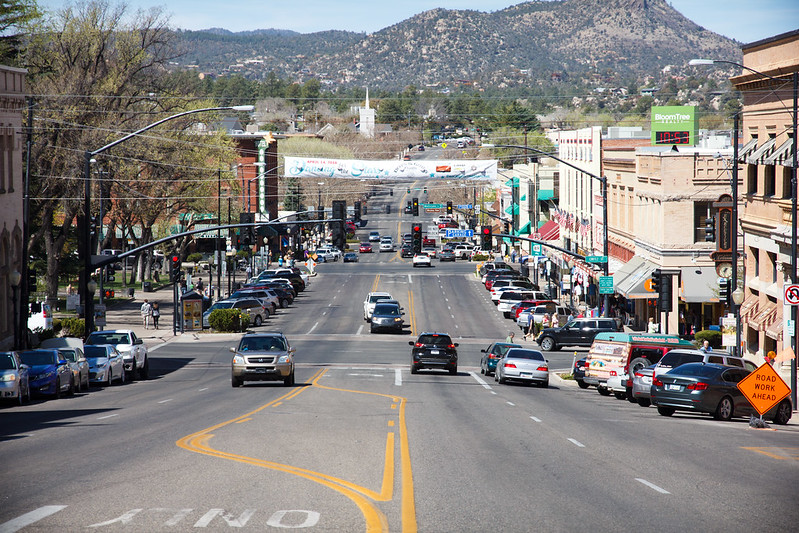
Historian Lewis Mumford once rhapsodized, “The city is a fact in nature, like a cave, a run of mackerel or an ant-heap. But it is also a conscious work of art, and it holds within its communal framework many simpler and more personal forms of art. Mind takes form in the city; and in turn, urban forms condition mind.”
And those, too, are also truths.
FINAL THOUGHTS
I am becoming more and more convinced that all of humankind lives along a spectrum on a continuum of related characteristics and traits.
- This one is more introverted than that other one who is more extroverted.
- This one is more mechanically inclined than that other one who is a klutzy “broke-chanic.”
- This one is more tree-hugger than that other one who loves taxis.
And so on…all the way down the line.
It really is just a matter of choice (and maybe upbringing as well).
Here’s a poem:
THE LAND OF MY BELONGING
And here I sit,
In the land of my belonging.
I can see the beauty that surrounds me:
In the green forest mountains
Wreathed with a lei of clouds,
Touched by the golden sun,
Adorned by rainbows;
In the deep rolling sea that sends playful waves
That kiss and tease the golden sands of my heart;
In Hina’s bright sanctuary floating in the velvet sky
As the stars winkle and shine through unimaginable depths
To shower their blessings on me
Are my beloved shackles.
I can taste the joyousness in
The cool wet of the mountain streams
That hide the battling ‘opae;
In the eternal salt of the sea
That surrounds this blessed land.
I can smell the flowers
Hiding in the green along the river banks
And the tang of limu
Wafting on the salty breezes.
I can feel the tingle of
Morning mists playing on my skin.
The heat of the sun beats out
Its own cadence through my blood,
And the gentle breezes caress me.
I can hear the birdsong and the life
That echoes through the valleys
And the pounding of the waves
Against the hard, black rocky shores
Growling deep and deeper.
I am bound to this place, you know,
By ties that will not loose me,
And I sink into contentment
In the soft embrace of the stillness
And the peacefulness of home.
But, my heart longs for you, my wanderer,
And hungers for your touch.
And I wonder at the visions in your eyes
That takes you out into the world
And keeps you moving in ever-widening circles.
Always you are called to the new, the different.
The world beckons and you must answer.
Your heart is pulled by other currents
Of wind and wave and ether
That lead to strange and distant shores.
May the sun shine on your road, dear one.
And may your heart lead you home….
[For those who don’t know: lei is a garland; Hina’s sanctuary is the moon; ‘opae are freshwater shrimps; limu is seaweed.]
By Netta Kanoho
Header Photo credit: “You Say That I Like What You Say” by Thomas Hawk via Flickr [CC BY-NC 2.0]
……
SOME OTHER POSTS TO EXPLORE:
(Click on each of the post titles below and see where it takes you….)
- THE BEAUTY REBELLION (Guerilla Gardening)
- BEYOND STUFF LOVE (Part 1): Buying Green
- HELP SEEDS FULFILL THEIR PROMISE
……
Thanks for your visit. I’d appreciate it if you would drop a note or comment below and tell me your thoughts.
12 thoughts on “CONNECT WITH NATURE OR NOT (Another IPS)”
What a great poem Netta!
I am a Metropolis AND nature lover. I like a busy high paced life, but at the same time to relax and unwind surrounded by nature.
I agree with you about how nature is healing. When I was younger I used to ride horses, and the place where I used to practice at, had a program for people with certain problems because studies have shown that horses are therapeutical.
At the same time, I also think that nature has a way to relax and disconnect the mind from problems one may have, allowing for better healing and resting.
Thank you for sharing!
Sophia, thanks for the visit and for sharing your thoughts. I agree that there are joys in nature and in the city as well. My own feeling is that the more ways you can interact with the world the richer your life becomes. And that’s a good thing!
Please do come again….
One of the better things about the pandemic lockdowns was that the timing was right in line with the warming of Spring. It is a wonderful time to be outside as all the trees and flowers wake from their winter slumber and burst into life. This fresh season was another catalyst to get outside and notice the natural beauty all around.
I still missed the people I was unable to see and connect with, but I definitely appreciated the beauty of nature and felt lucky to be able to experience so much of it. I might not be a legit “tree hugger”, but I do get a lot from spending time outside.
Aly, thanks for your visit and for sharing your thoughts. The slowdown that resulted from the pandemic response seemed to be a reminder to people that there really is more to life that hurry-scurry.
In some ways, it’s been grand to see folks using the time to find other ways to get re-grounded and reconnected to each other and the world around them despite (and sometimes because) of the wave of imposed smallness.
Even though I am a tree hugger tried-and-true, I do miss the lovely festivals and such that have gone missing or online or underground or whatever. I miss the rituals that connect most of all.
We go on. This, too, will pass.
Please do come again.
Hello, I think this is a very long article but above all rich in information. I too love nature and I love everything green.
I also created a website about gardening and nature. It’s really a very good therapy. We get rid of negative waves and it’s really nice, especially to see the plants we planted grow and become trees, and also help save the planet from global warming.
Thank you very much. I wish you good luck
Omama, thanks for your visit and for sharing your thoughts. I do appreciate it. Good fortune to you as well.
Please do come again.
Thank you Netta for your wonderful website and article you wrote. I felt amazingly refreshed after reading it along with your poem. But more on that later.
There are times I pray for a solar flare so we can all step back into nature. A step back would take us a mile forward as a species, in my opinion.
However there are so many that would be terrified if they couldn’t fire up their laptop or have the chance to ring home and ask if there partners want corn flakes or wheaties for the next day’s breakfast. So, I guess we have to make concessions for those who enjoy living in self made prisons.
It was quite amazing when you talked about IPS, as I find myself regularly in that state. I know for some it sounds like detachment, but for me it seems to be more like a super focus. To be aware of people and things around us and how we interact and even why in some cases. It is not often you either find someone who is similar and it is even less generally talked about.
I believe becoming reconnected is becoming more mainstream again. It used to be the hippies in the 60’s and even before that, there was a movement in the 1930’s dedicated to getting back to a simpler form of life. ( to go from that to the horrors of war, my heart bleeds) And now people are going and living off the grid. Not necessarily throwing away any practical functionality of society, but adapting it to their surroundings.
And that is the direction I will be heading in the future. I was just watching something on YouTube about a family from Detroit who moved to Alaska. It was a very interesting log.
Anyway, you have struck a nerve as I haven’t rambled on like this for a long time. My apologies, however it is your fault in writing such a great article.
On that note, I have heard about the Japanese doing forest bathing, but have not heard of biophillia. I surmise that, as you explained, is an in depth feature on the health benefits of being immersed in nature.
I will read Brian Merlins life hacks and, I presume, available to buy book. ( As long as they can ship to Vietnam where I currently live)
I’m going, I’m going I promise. But not before I compliment you on an incredible poem. And just reading it made me feel I was walking through a dewy mist of peaceful forest. Is that what you were trying to achieve. If so, you hit the nail on the head.
I am currently on my iPad. (Yes, I’m all teched up. I’m not against tech at all) but when I get on my lap I will be saving your incredible site to my favorites.
I have gushed on enough,and deservedly so. It it is not often these days when confronted withsuch an honest and touching website.
Many thanks.
Stephen
Stephen, I do thank you for the visit and for your “gushing.” I am so pleased you enjoyed the post.
It’s interesting to me that the way you’ve sussed out the deeper meaning of the “inner peace” the wise guys go on and on about is a lot similar to my own.
It does seem to me that tranquility and equanimity does seem to arise out of a particularly sharp focus on trying to navigate through our consensus-world while keeping an eye on Life-Its-Own-Self as well as staying true to your own self-definition.
You may want to access the work I’ve just started doing on the Medium platform. I do short-form posts on the Inner Peace Symptoms there. Here’s the link: https://medium.com/@titaworks
Please do come again….
Thank you for sharing your reflections. What do you call someone who hates nature? An industrialist LOL.
But jokes aside I can so relate to your reflections as I have just left the crazy rat race, sold all my “stuff” and moved to an island in pursuit of a simpler life. Its been seven months now and I have to pinch myself every day.
Greeting from Lombok Indonesia.
Good on ya, Abbas! A bold move that seems to suit you. Great!
Please do come again.
Your reflections hit home! How I wish I could just ditch the rat race, and live a simpler life – it would be like a dream every day. LOL. Your journey resonates with a lot of people yearning to have a balance in this industrial lifestyle we are all living.
You got some super long article here, but it’s packed with green love. I’ve got gardening and nature stuff in my backyard where I can plant veggies – such a therapy, right?
But, compared to yours, mine pales in comparison. Hehe.
Maybe I should really start watching plants grow, or saving the planet, and spread good vibes all around, but….
I’m not sure if I can do tree-hugging, but I do love soaking in the outdoors from time to time.
Cheers to the simple life and green adventures!
Meliza, thank you for the visit and for sharing your thoughts. You make me smile!
The post is meant to be a round-up of various options available to dip your weary self in the Green and reclaim your place in it. (You don’t have to do it all! That would just get you more weary!)
Please do come again.